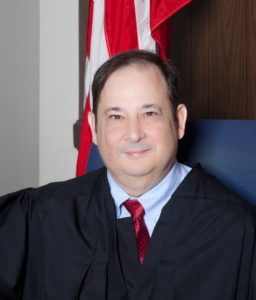Holding Court is a new series by retired Rye City Court Judge Joe Latwin. Latwin retired from the court in December 2022 after thirteen years of service to the City.
By Joe Latwin

The initial court for Rye is the Rye City Court. Despite its name, it is not part of the City – it is a State court. There is a full-time judge and a part time judge. They are appointed by the Mayor with approval by the City Council.
Once appointed, the City has no further control or input over the judges. The judges are paid by the State. The Court staff is hired and paid by the State. The City is responsible for providing space for the Court and the City provides for its maintenance, but the State reimburses the City for certain expenses.
Criminal cases
The Rye City Court has jurisdiction to hear all cases of violations and misdemeanors occurring in the City and preliminary jurisdiction over felonies committed in the City. For felonies, it can arraign the defendant, set bail if the charge is bail eligible, and hold preliminary hearings to determine if there is reasonable cause to believe that the defendant committed a felony. The Court cannot accept a plea to a felony charge or conduct a trial on a felony charge.
Most of the criminal violation cases involve traffic violations, City Code violations, environmental violations (fishing cases of undersized, out of season, or unlicensed catches). Most of the misdemeanor charges are Driving While Intoxicated, Aggravated Unlicensed operation, Domestic Violence cases, and Criminal Contempt charges.
At arraignment, the Court will advise the defendant of his or her rights, assign an attorney if the defendant is unable to afford one, set bail if the charge is bail eligible, issue an order setting forth the obligations of the attorneys, advise the defendant of the consequences of failing to show up on future dates, and calendar the next court date.
Usually, misdemeanor cases are adjourned for at least thirty days after arraignment since the District Attorney must provide certain disclosure to the defendant within 30 days. After that, there is a needed period during which the defendant’s attorney can make motions or negotiate a plea. Once the District Attorney certifies compliance with the disclosure requirements and announces readiness for trial, the Court can schedule a trial.
Newsletter Signup
The defendant can choose to have a jury trial with six jurors or to be tried by the judge. It takes about 12 weeks to schedule a jury trial.
Next week Latwin will explain how criminal trials work in Rye City Court.

